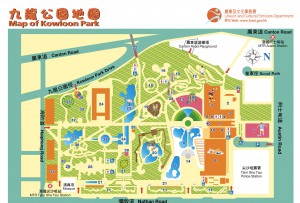Bi-City Biennale of Urbanism\ Architecture (Hong Kong)
UABBHK2015
Visions 2050 : Lifestyle & The City
December 2015 to February 2016
Kowloon Park, Hong Kong
Curatorial Statement:
Hong Kong is at a fascinating yet critical point in both its history and region’s development, it is now time to consider the challenges that face the city and the community. In the last fifty years the city has undergone exciting, vibrant and unparalleled transformations that has embraced the innovations of the future whilst still retaining the unique values and traditions of the past. As one of the most densely populated cities in the world, Hong Kong’s economic and urban lifestyle could become a model for future living. It is a microcosm of a fast-paced emerging multicultural community, which has already begun to demonstrate how unlikely patterns of function can co-exist. Visions 2050 – Lifestyle and the City presents an opportunity to speculate about Hong Kong’s future.
This year’s biennale challenges us to think strategically about change whether these come about through political legislation, financial intervention or architectural design and it is the younger generation of today that will be responsible for the city of tomorrow. It is their vision that we seek to capture in this exhibition and set this into the context of Hong Kong’s architectural legacy. Hong Kong owes much of its rich and varied culture to the unique development of its built fabric, the exhibition will place equal emphasis on showing how the critical contributions of established practices will act as a counterpoint to the speculation of a younger generation. We therefore set their proposals in dialogue with a critique that examines existing research and development and asks the younger contributors to both comment and perhaps challenge the work from established architects and other designers to create a touchstone between the past and the future.
The future requires vision and to develop this creativity, freedom of thought and vivid presentation are needed. Setting the framework for the exhibition we will invite a variety of exhibitors including local communities, schools and the wider public to explore the phenomena that drives Hong Kong and the Pearl River Delta. From the design community we will choose practices across several fields, the core of the exhibition will be architecture but we would also like to invite those from other creative disciplines (i.e ecologists, filmmakers, photographers, fashion and product designers) to show how many aspects of design and its underlying research contribute, sometimes imperceptibly to the way we lead our lives. The exhibition does not intend to be an exhaustive survey but more a snapshot of Hong Kong’s imagination, reflecting the complexity and richness of the city’s culture. The scenarios will consider the intensity of occupation and consequent nature of lifestyle and how a currently seamless infrastructure supplies the city with ubiquitous food, water and commodities. We believe it is time to ask questions in order to develop a more sustainable framework within which future generations can live.
The future dynamic of Hong Kong’s relationship within China is critical and as this forges ahead considerations of the value of its post-colonial heritage present fascinating questions about the blending and tension of these cultural forces. We will imagine how the city changes and we will re-imagine our places of the everyday, the experience of work, leisure and the home.
Through a context of four themes, celebration, gathering, reflection and future we will run a series of workshops and events where the process will become as important as the event as these platforms will raise critical questions about Hong Kong of the future. Can cities find ways to achieve a more balanced relationship with nature – will we work remotely – will there be the need for commuting – how will social organization work, and what effect will this have on our forms of habitation? Will public and private space become less defined and in what way will this fundamentally or perhaps imperceptibly change the way we live?
In the bi-city setting of Hong Kong and Shenzhen we ask ourselves how this unique relationship enables us to consider beyond the merely pragmatic. Some responses will inevitably arise through circumstantial need but others will be more radical. We particularly want to create an exchange with young people for they will be the next generation who can consider today what their future will be and how they must respond contemporary context.
Above all, the 2015/16 Biennale is a time for celebration as Hong Kong’s vibrant and inspirational community to address issues that are both critically difficult and critically inspiring.


